USAPCC Gallery: Colorado communities welcome race
New and returning host cities happy to have won bids
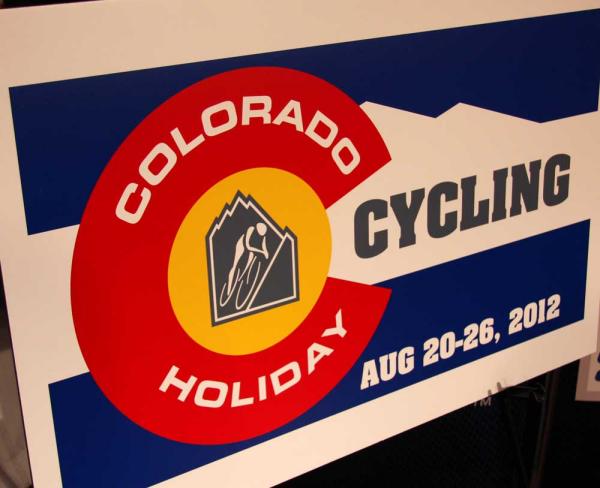
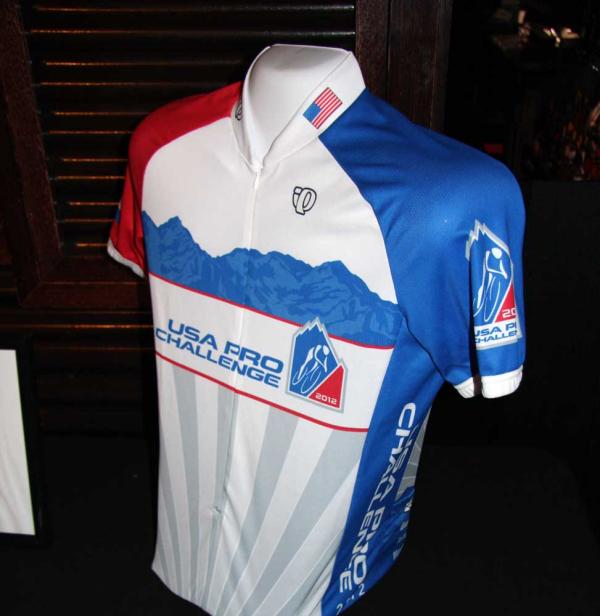
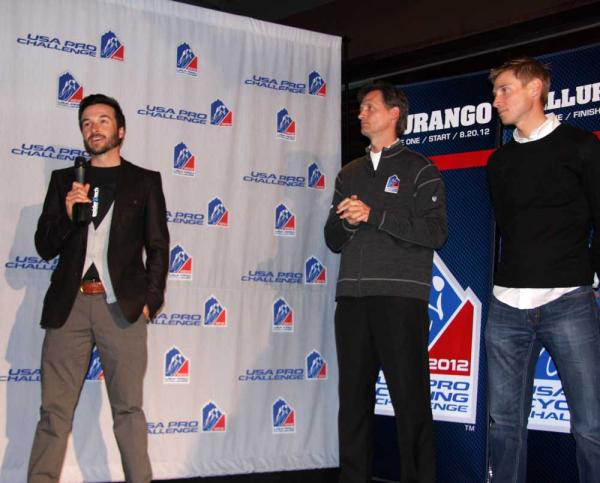
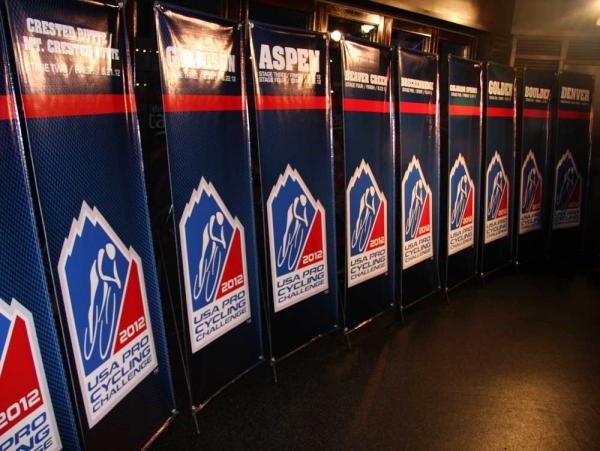


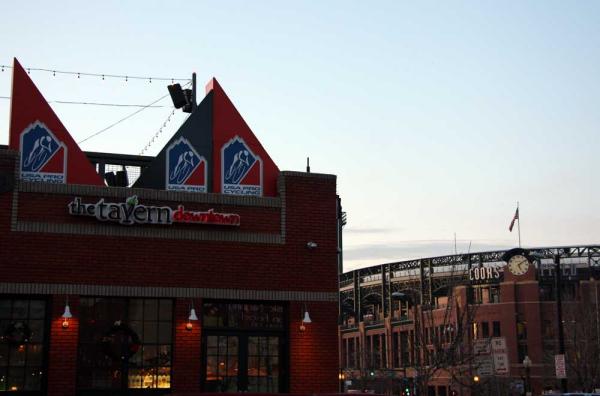
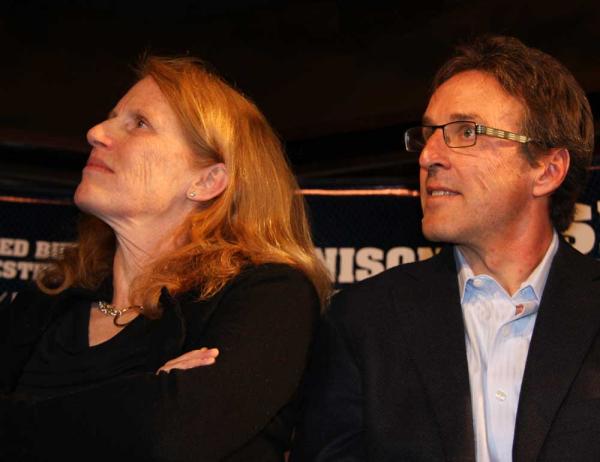
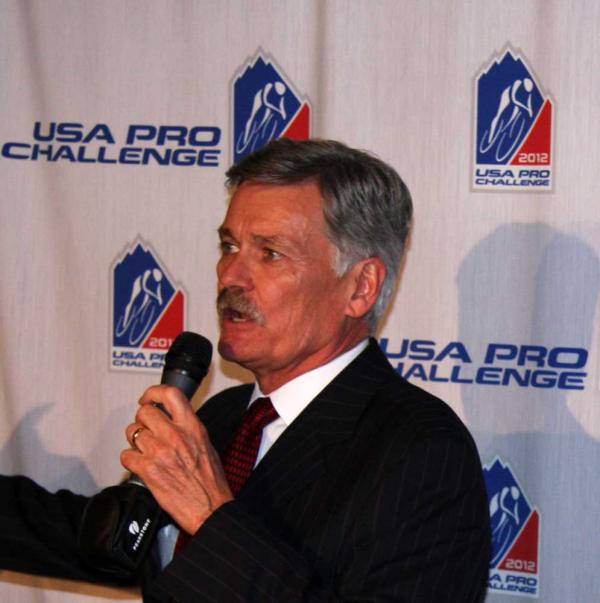
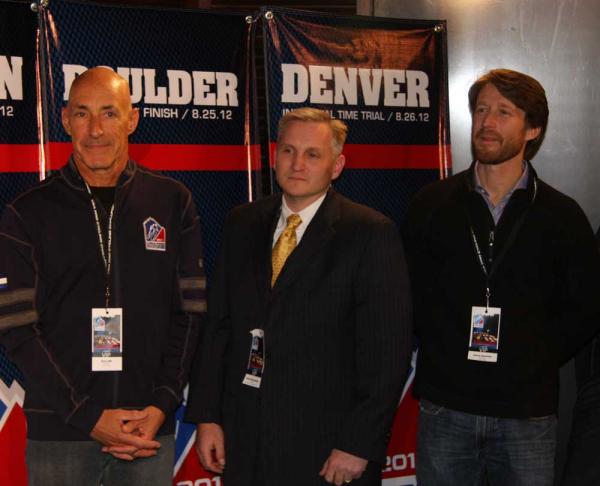
To say competition was fierce for the right to host the 2012 USA Pro Cycling Challenge would be understatement. Organizers received bids from 24 prospective Colorado host cities, but had to whittle that number to 12.
Holdovers from 2011 include Denver, Golden, Aspen, Crested Butte, Gunnison, Breckenridge and Colorado Springs. The quintet of newcomers are Durango, Telluride, Montrose, Beaver Creek and Boulder.
"When we found out we made the cut, there were literally tears of joy," said Michael Martelon, chair of the Telluride local organizing committee and the president of the town's tourism board. "Obviously we feel there is significant financial importance to being chosen. But there is also major emotional relevance. There were a lot of people who really put their heart and soul into this bid."
Telluride will serve as finish line for the week-long race's opening stage, which starts in Durango. The rest of the week goes like this: Montrose to Crested Butte; Gunnison to Aspen; Aspen to Beaver Creek; Breckenridge to Colorado Springs; Golden to Boulder; Denver individual time trial.
"Telluride is already known for its festivals," added Martelon, referring to its famous bluegrass and brews and blues gatherings. "But this race is one of the biggest festivals out there and we wanted to be a part of it. That's why we applied last year and again this year."
Durango was also a second-time applicant, but first-time winner. The city, in consort with Fort Lewis College, is planning an Olympic-style athlete village for the race's lead-up and opening day.
"The idea is that we'll have all the cyclists in residence on the campus," said FLC provost Barbara Morris, whose campus sits just above Durango on a tabletop mesa with stunning views of the nearby La Plata Mountains. "This is an amazing opportunity for Durango and the surrounding area. Our city is such a huge cycling town and this just recognizes the passion that people here have for this sport."
Get The Leadout Newsletter
The latest race content, interviews, features, reviews and expert buying guides, direct to your inbox!
Boulder did not apply in 2011, due mostly to issues with hotel space. The USAPCC coincides with move-in week at the University of Colorado-Boulder, meaning it would have been impossible to house the race. But after seeing the spectacle that was the inaugural event, Boulder's power-that-be got together and came up with a solution. They'll send the racers to Denver after the finish of stage 6 to avoid the hotel problem.
"It's really been a year in the waiting as far as I'm concerned," said Boulder LOC co-chair Andrew Shoemaker. "Last year, we couldn't find a way to make it work. But that changed. It was the international television coverage that really sealed the deal for us. That was critical in helping us sell this to the City of Boulder in terms of long term exposure gained. This isn't just about race day on August 25. This is about transmitting that postcard to the world of what it is like to ride a bike and recreate and visit Boulder, Colorado."
The key now is to make the Colorado event a viable entity for years to come, a mission that recently failed in Missouri and Georgia, two now-defunct stage races that lasted three and six years respectively.
"I'm very hopeful that we don't see a repeat of that," said Steve Johnson, CEO of USA Cycling. "The big difference between those events and Colorado is that you had a lot of state money involved in those of events. The problem with that is on a balance sheet all those expenses show up as one big line item, but the revenue generated by the economic impact doesn't show up directly on that balance sheet. So when you are on hard economic times like right now, it's easy for a state to cut that out."
The USAPCC appears to be on more firm financial footing, deriving the bulk of its operating budget from sponsors and host cities, who individually contribute smaller portions of required capital.
"We didn't give one large chunk of money," said Telluride's Martelon. "We got small chunks by spreading our commitment across the entire community. And the numbers add up for us. Last year, Aspen's hotels were about 70 percent capacity for their two nights of the race. But Aspen has 7000 rooms. We only have 1500 and it's a time of year when we're usually running around 40 percent. Now we'll top that number no problem even after we take care of the race's needs. So the numbers add up, they really do."
That sentiment was echoed by the state's most powerful politician, Governor John Hickenlooper. He proclaimed the week of the race as the "Colorado Cycling Holiday."
"The USA Pro Cycling Challenge was an event that shined an international spotlight on Colorado," the governor said in a prepared statement. "Any expectations of success we had [last year] were surpassed ten-fold. Now we want race week each August to be known as Colorado Cycling Holiday to attract visitors from all over the world, and to celebrate Colorado, good health and cycling."